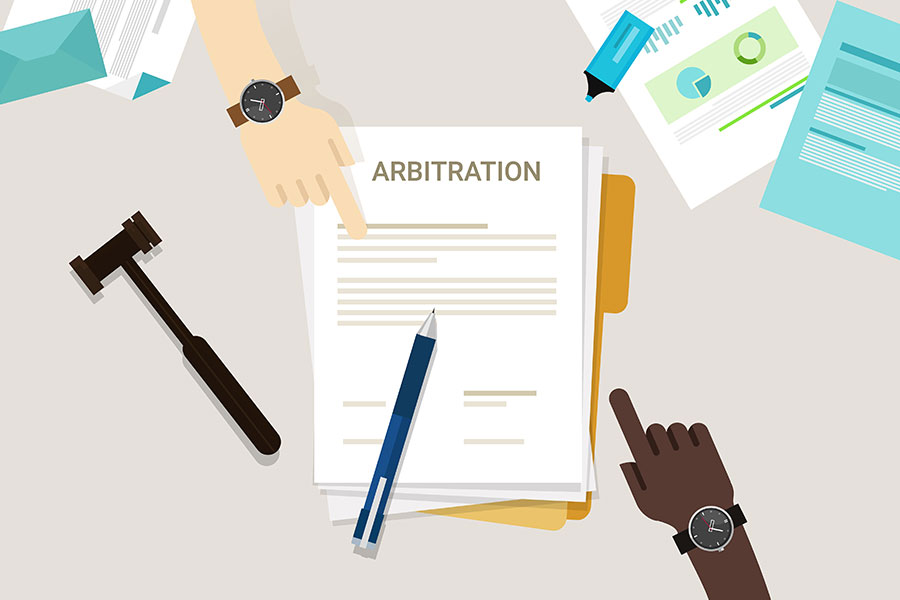Bank Guarantees in the Time of Covid-19: To injunct, or not to injunct

Introduction
The severity of Covid-19 outbreak and its crippling effect on global economy and commercial supply chain is ubiquitous. We are all painfully aware of the drastic preventive measures implemented by governments worldwide to curb the pandemic which continues to have pernicious ramifications for business entities across industries. Due to the delays and breaches in various agreements such as construction and infrastructure contracts, there is a very high likelihood of parties invoking the Bank Guarantees given by counterparties.
In this this article, we evaluate the judicial approach adopted by courts while granting injunction pertaining to invocation of bank guarantees, a financial instrument extensively used by commercial parties to secure contractual performance. We argue that courts must be circumspect while granting injunctive reliefs and uphold the sanctity of freely negotiated commercial contracts as unwarranted judicial interference may produce deleterious economic results in the long term. We also comprehensively analyze the recent judicial pronouncements rendered by the Delhi High Court.
What is a bank guarantee?
Section 126 of the Indian Contract Act, 1872 defines a ‘contract of guarantee’ as a contract to perform the promise, or discharge the liability, of a third person in case of his default. Bank guarantee and letter of credit are financial instruments to secure performance or payment obligation under a commercial contract wherein a third party i.e. the bank undertakes to secure the transaction in case of a specified default. A letter of credit usually secures the payment obligation of a buyer and instills confidence in the counter party by mitigating risk of uncertainty in receiving payment post-delivery, whereas a bank guarantee usually secures inter se performance obligations of contracting parties and facilitates high value transactions by ensuring credibility. Pertinently, both these financial instruments are considered as good as cash (typically payable on demand) and issued by way of a separate tri- partite agreement governed by its own stipulations, including mechanism for invocation. Generally, bank guarantees can be classified into two types; a conditional bank guarantee which includes a performance bond, and an unconditional bank guarantee. However, the beneficiary of a bank guarantee is entitled to realize the guaranteed amount irrespective of any pending dispute between the contracting parties and the bank giving such guarantee is bound to honour it irrespective of any dispute raised by its customer.
Exceptions to Invocation
The law on invocation of bank guarantees and its exceptions is well settled in India. Perusal of leading judgments of the Hon’ble Supreme Court unequivocally highlights two clear exceptions when a court may grant injunction against invocation of bank guarantees:
- Fraud; and
- Irretrievable injustice or special equities.
As such, the Apex Court has recently held in Standard Chartered Bank Ltd. v. Heavy Engineering Corporation Ltd. and Anr, 2019 SCC OnLine SC 1638, while reiterating the consistent view espoused in earlier judgments:
“The settled position in law that emerges from the precedents of this Court is that the bank guarantee is an independent contract between bank and the beneficiary and the bank is always obliged to honour its guarantee as long as it is an unconditional and irrevocable one. The dispute between the beneficiary and the party at whose instance the bank has given the guarantee is immaterial and is of no consequence. There are, however, exceptions to this Rule when there is a clear case of fraud, irretrievable injustice or special equities. The Court ordinarily should not interfere with the invocation or encashment of the bank guarantee so long as the invocation is in terms of the bank guarantee.”
To answer what constitutes irretrievable injustice or special equities, the Hon’ble Supreme Court emphatically relied on the decision of the US District Court in Itek Corp. v. First Nat. Bank of Boston [566 Fed. Supp. 1210] which held that the test for irreparable harm/irretrievable injustice is based on the doctrine that “in commercial litigation, the question whether the plaintiff is likely to suffer irreparable injury may be case in terms of whether the plaintiff has available a legal remedy adequate to compensate it for its injuries.”
Therefore, one may certainly infer that special equities exist whenever a party is left with no meaningful recourse or adequate legal remedy to receive damages or compensation for the injury caused to it by wrongful invocation of bank guarantee by the counter party. Usually, damages for wrongful invocation of bank guarantee are recoverable as a contractual claim through designated dispute resolution mechanism under the contract and thus courts have largely refused to grant injunctions even in cases where encashment would lead to financial hardship or distress. However, there may very well be a situation wherein bank guarantees are invoked by a financially distressed contracting party facing imminent threat of insolvency, and amount so collected is preferentially dissipated to one of its financial creditors. Certainly, “special equities” exist as “irretrievable injustice” may be caused as the counter party may not be left with any adequate legal remedy to recover damages from a debt-ridden insolvent company inevitably destined for liquidation, even if it were to be ultimately successful.
Covid-19 pandemic: Ipso facto “special equities” or “Force Majeure”?
The Delhi High Court in Halliburton Offshore Services Inc. v. Vedanta Ltd., 2020 SCC OnLine Del 542, passed a detailed ad interim order holding that “special equities” exist owing to unprecedented scale of Covid-19 outbreak and suspension of industrial activity due to lockdown, and restrained call on performance bank guarantees by Vedanta. The Court pivoted the ad-interim injunction on the reasoning that situation created by Covid-19 pandemic was incapable of being predicted by either party, and prima facie in the nature of force majeure, absent which Halliburton would have completed contractual performance timely. At first blush, this decision seems opportune given the grave hardship faced by commercial entities to perform contractual obligations, however a closer analysis reveals interpretational follies (in contravention of settled jurisprudence) which may lead to vexatious results.
Firstly, it raises the significant question whether successful reliance on force majeure clause in the contract also entitles a party to obtain injunction restraining invocation of bank guarantees in the wake of Covid-19 pandemic. This is a ground hitherto unknown to Indian jurisprudence and may raise serious liquidity concerns for the beneficiary party, upsetting finely tuned commercial transactions and cause adverse cascading effects. Secondly, the order seems to have ventured into an erroneous interpretation of the judgment rendered by the Supreme Court in Standard Chartered Bank (supra) by observing that “special equities” and “irretrievable injustice” are distinct circumstances, existence of either of which would justify an order of injunction. Pertinently, such view has not been expressed by the Hon’ble Supreme Court, either expressly or impliedly in the judgment. As noted above, relying on Itek (supra), Supreme Court observed that “special equities” exist in circumstances where irretrievable injustice or irreparable harm will be caused to a party if it is not left with any meaningful recourse to receive compensation for wrongful invocation, despite succeeding in the main dispute. However, the Delhi High Court after noting that “special equities” exist, further observed that “irretrievable injury” will be caused to Halliburton if bank guarantees are allowed to be encashed during lockdown, despite likelihood of recovery of such amount, eventually through arbitration.
Although, the relief was granted for a limited period, it was expected that the interpretational misadventure will be corrected by the Court while finally deciding the matter.
The Hon’ble High Court of Delhi on 29 May 2020 pronounced the final order in M/s Halliburton Offshore Services Inc. v. Vedanta Limited & Anr., O.M.P.(I)(COMM.) No. 88/2020, vacated the ad-interim relief granted to Halliburton and disposed off the petition observing that no case was made out for continuance of the ad interim injunction against encashment of bank guarantees as the pleadings disclosed several disputed facts pertaining to delay and non-performance of the contract, and the same shall be adjudicated by the arbitral tribunal. The contract dated 25 April 2018 entailed end to end integrated oil well construction and development for ultimate recovery of oil from three oil fields by Halliburton at a value of USD 197 million within a stipulated time frame. Under the contract, Halliburton provided three sets of bank guarantees namely, advance guarantees, financial guarantees, and performance guarantees. The advance guarantees were to secure the advance payments which were made by the Company to the Contractor. The performance bond was for the purpose of securing the efficient performance of the contract and was to remain valid and enforceable throughout the performance of the contract including the defects liability period and 180 days thereafter. The financial bond was to secure any claim for liquidated damages by the Company. All these three bonds/ guarantees were to remain valid and enforceable as stipulated under clause 9.2 of the contract. As Halliburton was in continuous breach of contractual deadlines, Vedanta demanded a ‘cure plan’ vide its letter dated 25 November 2019 to which Halliburton replied vide letter dated 5 December 2019 suggesting a staggered completion schedule for the three oil fields. This, however, was not acceptable to Vedanta and it insisted on completion by 31 January 2020 and it reserved it rights to appropriate recourse. In view of the stalemate, a project monitoring committee was conducted on 21 January 2020, where Vedanta expressed serious concern over consistent slow progress of work, and it was jointly agreed that project shall be completed by 31 March 2020. Finally, Halliburton on 18 March 2020 invoked force majeure clause (containing epidemic as a trigger event) in the contract which was strenuously rejected by Vedanta citing that Halliburton was already in serious breach and reserved its right to complete the contract on its own using alternative sources. As such, the present petition under section 9 was filed and subsequently, Vedanta terminated the contract and invoked the bank guarantees on 13 April 2020.
The Court conducted a thorough analysis of the relevant contractual terms and contentions raised by the parties, and observed:
- Time was of essence in the contract and Halliburton warranted that it would achieve timely milestones stipulated under the contract, failing which liquidated damages were to be paid.
- Halliburton was in serious breach of the contractual deadlines much prior to outbreak of Covid-19 and imposition of the lockdown. Monthly progress reports demonstrate clearly that little or no work was conducted by Halliburton in months before the outbreak of Covid-19.
- The grounds taken to invoke the Force Majeure clause are that due to outbreak of Covid-19 experts from France who may be required cannot travel to India. Since the Force Majeure clause in the contract covers epidemics and pandemics, Halliburton claims that its non-performance is justified, and the invocation of Bank Guarantees is liable to be stayed. There is no doubt that Covid-19 is a Force Majeure event. But was this event the cause of the non-performance?
- The principles as laid down in Energy Watchdog v. Central Electricity Regulatory Commission, (2017) 14 SCC 80 by the Supreme Court have to be applied to the facts of the present case in order to assess as to whether the performance of Halliburton was prevented by the Force Majeure condition. Did Covid-19 prevent Halliburton from bringing the work on the three fields to completion and conclusion? If so, is the encashment of Bank Guarantees liable to be injuncted?
- The question as to whether Covid-19 would justify non-performance or breach of a contract must be examined on the facts and circumstances of each case. Every breach or non-performance cannot be justified or excused merely on the invocation of Covid-19 as a Force Majeure condition. The Court would have to assess the conduct of the parties prior to the outbreak, the deadlines that were imposed in the contract, the steps that were to be taken, the various compliances that were required to be made and only then assess as to whether, genuinely, a party was prevented or is able to justify its nonperformance due to the epidemic/pandemic.
- It is the settled position in law that a Force Majeure clause is to be interpreted narrowly and not broadly. Parties ought to be compelled to adhere to contractual terms and conditions and excusing non-performance would be only in exceptional situations. As observed in Energy Watchdog (supra) it is not in the domain of Courts to absolve parties from performing their part of the contract. It is also not the duty of Courts to provide a shelter for justifying nonperformance. There must be a ‘real reason’ and a ‘real justification’ which the Court would consider to invoke a Force Majeure clause.
- The past non-performance of Halliburton cannot be condoned due to the Covid-19 lockdown in March 2020 in India as it was in breach since September 2019. Opportunities were given to Halliburton to cure the same repeatedly and despite the same, it could not complete the Project. The outbreak of a pandemic cannot be used as an excuse for nonperformance of a contract for which the deadlines were much before the outbreak itself.
- The question as to whether the Force Majeure clause itself would apply or justify non- performance in these facts would have to be finally determined finally in the arbitral proceedings. Court relied on Global Steel Philippines v. STC of India Ltd., ILR 2009 VI Delhi 1 and Global Steel Philippines v. STC of India Ltd., [FAO (OS) No. 186/2009, decided on 12 May 2009]
- The dispute between the beneficiary and the party at whose instance the bank has given the guarantee is immaterial and is of no consequence. There are however, exceptions to this Rule when there is a clear case of fraud, irretrievable injustice or special equities. The Court ordinarily should not interfere with the invocation or encashment of the bank guarantee so long as the invocation is in terms of the bank guarantee. Court authoritatively relied on Standard Chartered Bank (supra) and corrected the seemingly incorrect interpretational approach adopted at the stage of passing the ad interim order earlier.
- The Supreme Court categorically observed that the adjudication of the quantum of loss and damages is not a precondition for invoking Bank Guarantees which are meant to secure the loss or damage caused due to breach. Based on the terms of the Bank Guarantee the amount would be payable on a mere demand by the beneficiary. Court relied on Ansal Engineering Projects Ltd. v. Tehri Hydro Development Corporation Ltd., (1996)5 SCC 450.
Another recent decision of the Delhi High Court pertaining to injunction against invocation of bank guarantee was pronounced on 28 April 2020 in Indrajit Power Private Limited v. UOI & Ors., W.P.(C) 2957/2020. The Petitioner sought to rely on financial hardship caused due to imposition of lockdown and submitted that it had no immediate source of revenue due to closure of a company to which it supplied energy by operating a captive power plant. It was also submitted that encashment of bank guarantee would result in non-payment of wages of workers and push the Petitioner into default as the amount would be appropriated from its working capital. Apart from this, the Petitioner also relied on the exceptional situation created by Covid-19 pandemic and force majeure stipulation. However, the court squarely rejected these contentions and followed the settled legal position to hold that invocation of an unconditional bank guarantee cannot be injuncted unless exceptional grounds of irretrievable injustice and fraud existed. Thus, the Court rightly held that Covid-19 pandemic does not ipso facto entail “special equities” or “irretrievable injury” unless the it will be impossible for the guarantor to reimburse itself, if it ultimately succeeds and recover the amount from the beneficiary by way of restitution.
Legislative intervention: Need of the hour?
Default in contractual performance, either due to delay or other breaches is an inevitable outcome of the pandemic and subsequent governmental measures, the impact of which is visible across various industries. Some parties, especially the construction, concession and supply contractors are visibly bleeding and in dire need of temporary relief to tide over the current crisis, shielding them additional burden due to invocation of performance bank guarantees. As detailed above, grant of injunctive relief from courts is based on extremely narrow precedential parameters set out by the Supreme Court over time. Although, one can be prescient that the Apex Court will adopt a lenient approach and carve out principled exceptions to meet the extraordinary situation created by the pandemic, that will only happen once it has the occasion to decide an appropriate case in due time. That may very well be too little too late.
Hence, the need of the hour is immediate legislative intervention to provide the desired relief to contracting parties and ensure uniform availability of such measure, obviating the vagaries of selective judicial application on a case to case basis. India can certainly consider the Singapore model for inspiration and reference. Singapore has recently enacted the COVID-19 (Temporary Measures) Act 2020 whereby parties to specified scheduled contracts are prohibited from initiating certain actions against counterparties or their guarantors for a period of six months if the inability of the counterparty to perform obligations under such contracts is materially caused by Covid-19 outbreak. The list of prohibited actions inter alia includes invocation of performance guarantees until at least seven days before expiration of the instrument, once the affected party gives notice to the counter party that its contractual performance is materially impacted due to Covid-19. It also envisages extension of validity of performance guarantees by the affected party, if the same is to occur during the temporary relief period so that substantive rights of parties are not adversely affected. We believe that a similar legislative exercise by the Indian government can effectively ameliorate precarious financial situation being faced by contracting parties due to effect of the pandemic and help them restore their businesses in the long run.
Conclusion
As financial health of various contracting parties continue to deteriorate, pushing some to the brink of insolvency, one may staunchly argue that there is a dire need for equitable and restorative judicial response in disputes where non- performance by defaulting party is caused due to impact of the pandemic. However, it is equally imperative to be mindful that foundation of modern contract law lies in the adage ‘pacta sunt servanda’ and commercial wisdom of parties expressed through chosen mechanism of risk allocation under the contract must not be bypassed casually. The fidelity of financial instruments is extremely vital to continuance of business operations and supply chains and Covid-19 outbreak must not become a basis for courts to interfere with such instruments. It must be borne in mind that a nuanced approach in consonance with settled legal principles is the need of the hour to strike a fine balance between interests of the procurer and beneficiary of bank guarantees.





